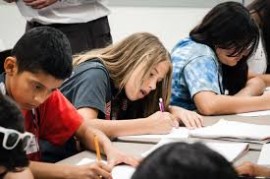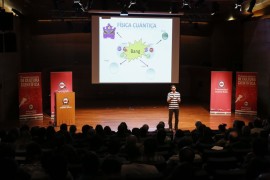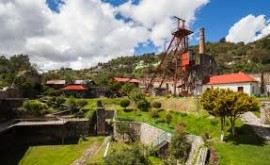- Fecha(s): 23/09/2022
- Lugar: Seminario Métodos Cuantitativos. Facultad de Economía y Empresa. Universidad de Murcia.
- Ponente: Darragh Flannery. Department of Economics, Kemmy Business School, University of Limerick, Ireland.

The existence of a ‘multiplier’, ‘compositional’ or ‘social context effect’ is debated extensively in the literature on school effectiveness. Some researchers have posited that the relationship between social context and achievement is mediated by school, teacher or classroom factors, such as teacher expectations, quality of instruction, or adequacy of school resources. In this context, this…
- Fecha(s): 12/07/2022
- Lugar: Magdalena Kapelko (Department of Logistics, Wroclaw University of Economics and Business, Poland)
- Ponente: Magdalena Kapelko (Department of Logistics, Wroclaw University of Economics and Business, Poland)

Abstract This article proposes an innovative approach to evaluate firms’ inefficiency accounting for corporate social responsibility (CRS) activities of firms. In the first step, we estimate dynamic inefficiency for each input, marketable output, CSR output and investment using Data Envelopment Analysis. Dynamic inefficiency measure accounts for the confounding role of adjustment costs related with firms’…
- Fecha(s): 11/07/2022
- Lugar: Instituto Centro de Investigación Operativa (Universidad Miguel Hernández). Se grabará.
- Ponente: Maria Chiara Pagliarella

This paper introduces a three-fold Fay-Herriot model with random effects at three hierarchical levels. Small area best linear unbiased predictors of linear indicators are derived from the new model and the corresponding mean squared errors are approximated and estimated analytically and by parametric bootstrap. The problem of influence analysis and model diagnostics is addressed by…
- Fecha(s): 16/06/2022
- Lugar: Universidad de Murcia - Departamento de Fundamentos del Análisis Económico
- Ponente: Debrah Meloso

We use high-performance Continuous Double Auction trading software and algorithms to study the effects of algorithmic trading on pricing and allocative efficiency in a laboratory environment. In addition to trading manually, participants can deploy algorithms that bid marginal valuations modulo a spread and a market-making (maker) or liquidity-taking (taker) parameter. The spread and maker/taker parameters…
- Fecha(s): 30/05/2022
- Lugar: Instituto Centro de Investigación Operativa (Universidad Miguel Hernández). Se grabará.
- Ponente: Agustí Segarra Blasco

La investigación científica y la divulgación, esto es poner al alcance de un público más amplio son dos caras de una misma moneda, pero no es lo mismo. Entre los científicos y también entre los economistas encontramos a grandes investigadores que con el paso de los años también se han convertido en divulgadores muy populares…

Bullying is a widespread problem throughout the world that affects one in three students and whose consequences can last in the long term. The main objective of this research is to study the causal relationship between bullying and academic performance on 15-year-old students in Spain. The databases used come from the external evaluation of the…
- Fecha(s): 18/05/2022
- Lugar: Seminario de Métodos Cuantitativos. Universidad de Murcia
- Ponente: José Rodolfo Morales (Universidad de Valladolid)

This paper formulates and analyzes a dynamic game between two trading regions that face a transboundary pollution problem. We study how the distribution of firms and trade costs affect the optimal emission decision of governments and how the resulting environmental policy would alter the allocation of the industry between both countries. The underlying microeconomic behaviour…
- Fecha(s): 31/03/2022
- Lugar: Seminario de Economía aplicada - Facultad de Economía y Empresa - UMU
- Ponente: Andrés Sánchez Picón

En este seminario se va a tratar un tema de actualidad, el aprovechamiento de los recursos naturales y sus efectos sobre el desarrollo económico. Para ello se analiza un sector de gran trascendencia en la historia económica española: la explotación de los abundantes y variados recursos de su subsuelo en los siglos XIX y XX….









